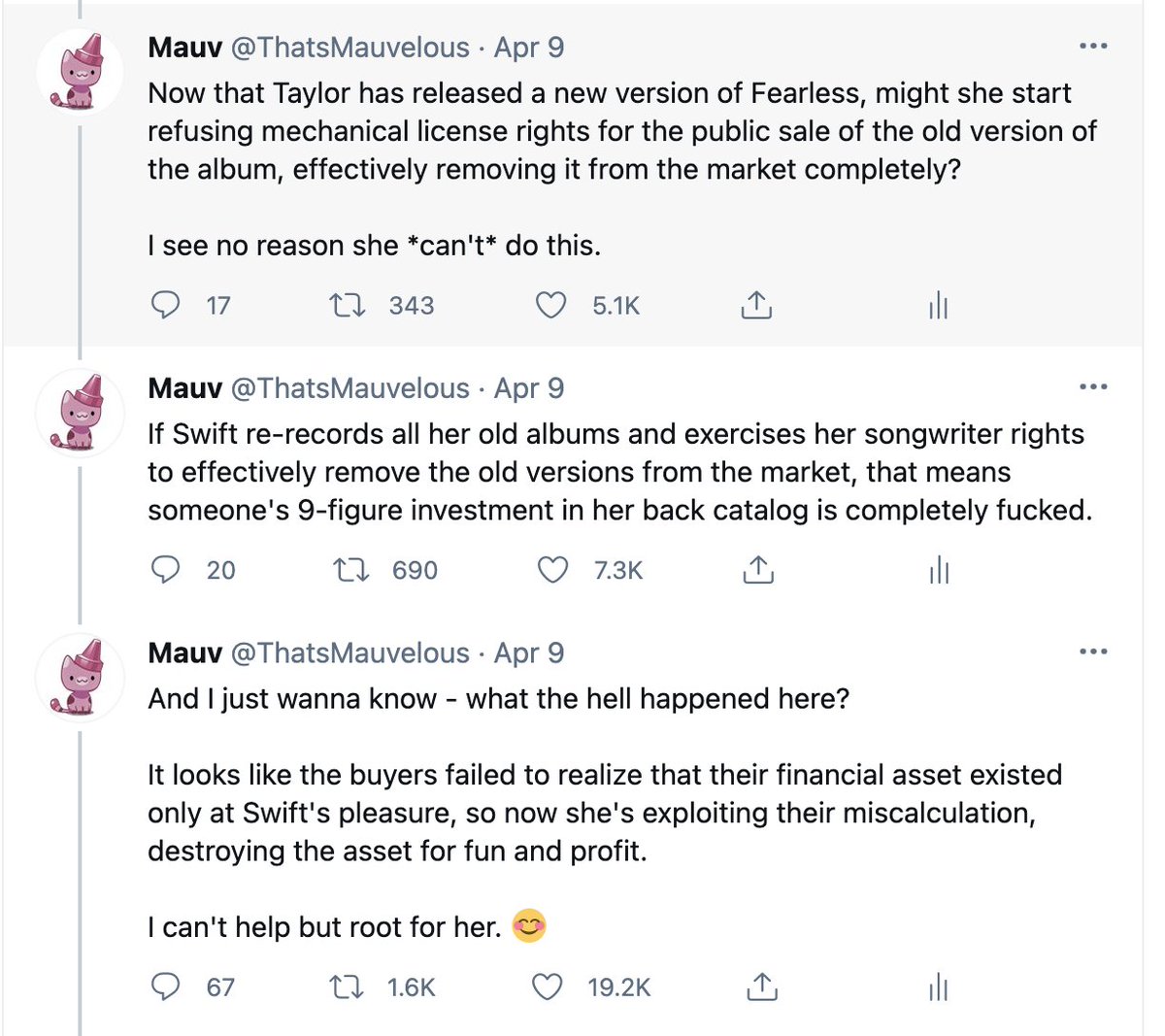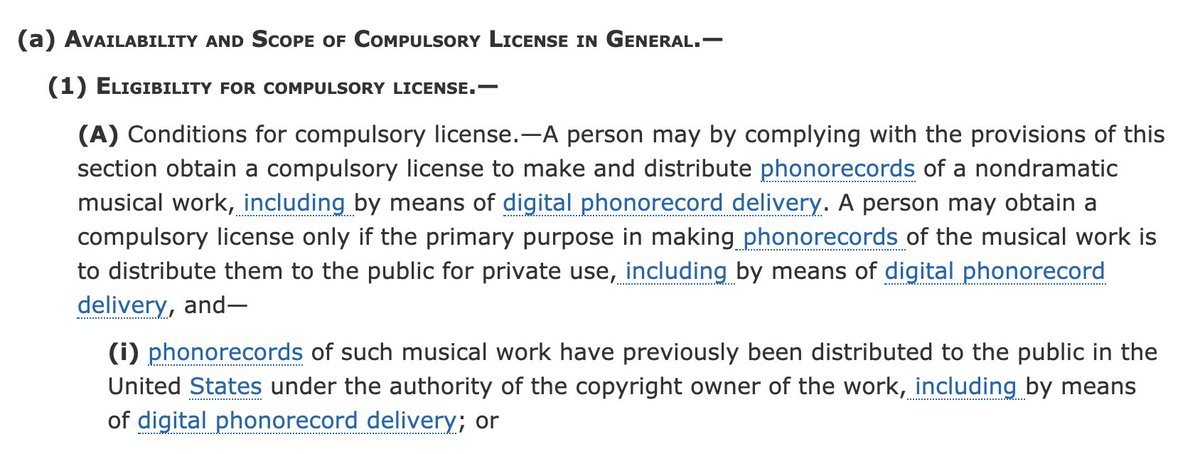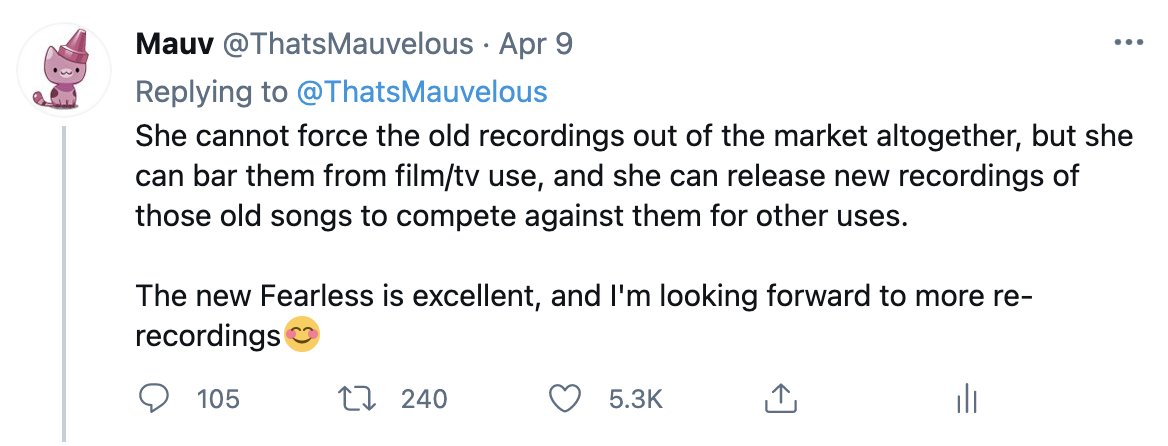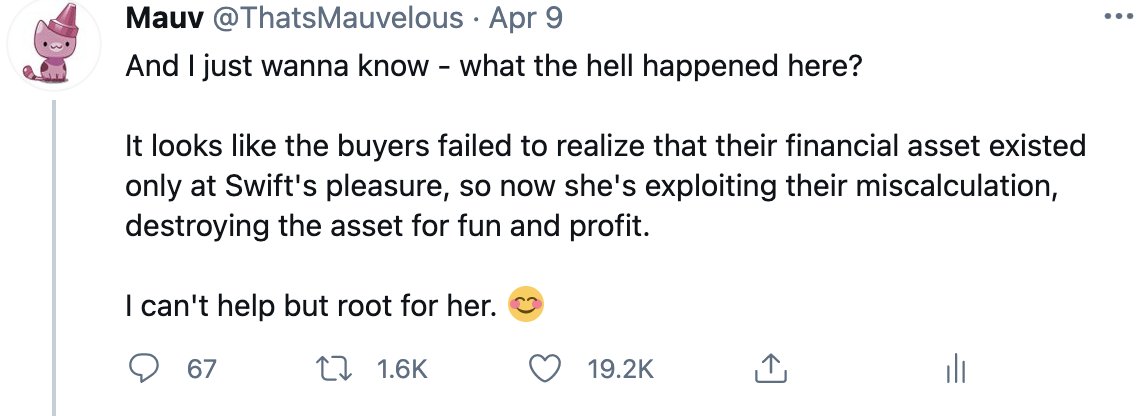I& #39;m a law student. A few days ago, I wrote a thread about law. I do this a lot. My threads about law are usually retweeted less than 10 times.
But this time, my topic was Taylor Swift& #39;s IP, and the thread was retweeted 20,000 times.
The dust is settling a bit. It seems I& #39;ve gone from about 600 followers to nearly 11,000 followers.
So first: Hello, new friends! And holy shit, thank you all so much.
But now it& #39;s time for my next thread about law: Specifically, about being *wrong* about the law.
So first: Hello, new friends! And holy shit, thank you all so much.
But now it& #39;s time for my next thread about law: Specifically, about being *wrong* about the law.
My original thread about Taylor Swift was 26 tweets.
Some of them were wrong about facts - for example, I said Swift was 13 years old when she was actually 15.
Some of them were wrong about facts - for example, I said Swift was 13 years old when she was actually 15.
I don& #39;t feel *too* bad about being wrong about Swift& #39;s age.
I& #39;m a pink crayon cat telling stories to my internet friends. I try to get the facts right. If I mess up, que sera sera.
I& #39;m a pink crayon cat telling stories to my internet friends. I try to get the facts right. If I mess up, que sera sera.
But in the final three tweets of the thread, I was wrong in a more interesting way: I was wrong about the law.
I suggested that Swift can outright refuse to grant mechanical licenses for the continued public sale of the Big Machine recording through iTunes and Spotify and so on.
(See screenshot.)
(See screenshot.)
That was incorrect. Swift can refuse to grant sync licenses (for film/tv), but she cannot refuse to grant mechanical licenses (for itunes/spotify/cds).
17 USC § 115(a) is the statute which sets out the conditions under which Swift *must* grant a mechanical license for the continued sale of the Big Machine albums.
The gist: Once a songwriter licenses a song to be sold on itunes/cd, they can& #39;t later refuse to license it.
The gist: Once a songwriter licenses a song to be sold on itunes/cd, they can& #39;t later refuse to license it.
So - Swift can& #39;t just stop licensing to Big Machine.
Could Swift require iTunes, Spotify, and other services remove the Big Machine catalog as a condition of those services& #39; access to her current catalog? I& #39;m not sure.
Regardless, the law affords her less power than I thought.
Could Swift require iTunes, Spotify, and other services remove the Big Machine catalog as a condition of those services& #39; access to her current catalog? I& #39;m not sure.
Regardless, the law affords her less power than I thought.
Hearkening back to getting Taylor& #39;s age wrong: I& #39;m just a pink crayon cat, telling stories to my handful of internet friends. If I get the facts wrong, que sera sera. Right?
Maybe not. This time it feels different.
Maybe not. This time it feels different.
Recall - most of my law threads get less than 10 retweets. But this one got 20,000 retweets. It was a lot more viral than most.
Why?
Why?
One explanation: This thread was viral because it was about fun Taylor Swift stuff.
I think there& #39;s some truth to this, but it doesn& #39;t feel complete.
Another explanation: This thread was viral because it included a thing that is really fun to believe, even though it& #39;s wrong.
I think there& #39;s some truth to this, but it doesn& #39;t feel complete.
Another explanation: This thread was viral because it included a thing that is really fun to believe, even though it& #39;s wrong.
A few hours after I posted the thread, several helpful folks pointed out the statute which compels mechanical licenses (thanks @sctweak and @rtushnet!)
I added this information to the end of my thread.
Hmm. Did people scroll all the way to the end to see the correction?
I added this information to the end of my thread.
Hmm. Did people scroll all the way to the end to see the correction?
The final correction tweet has over 5,300 likes and many positive comments. (see screenshot)
I guess a lot of people scrolled all the way to the end and understood the correction. Maybe they even retweeted the thread.
I guess a lot of people scrolled all the way to the end and understood the correction. Maybe they even retweeted the thread.
On the other hand, one of the earlier tweets has 19,200 likes. (see screenshot)
I suspect this means a lot of people missed the correction. For these people, the thread was probably more exciting and more viral because it was wrong.
I suspect this means a lot of people missed the correction. For these people, the thread was probably more exciting and more viral because it was wrong.
This almost feels like two separate threads rolled into one. Some people read a wrong but highly viral thread, while others read a corrected, less exciting, but still pleasing thread.
I think I fell ass-backwards into maximum virality by accidentally braiding the two together.
I think I fell ass-backwards into maximum virality by accidentally braiding the two together.
A lot of people saw this thread. I gave wrongish info to a lot of people.
A *lot* of people.
Ronan Farrow follows me now.
Did I give wrong info to Ronan Farrow?
Damn.
(He& #39;ll have no trouble finding the truth. But I suppose this will make him skeptical of me in the future.)
A *lot* of people.
Ronan Farrow follows me now.
Did I give wrong info to Ronan Farrow?
Damn.
(He& #39;ll have no trouble finding the truth. But I suppose this will make him skeptical of me in the future.)
All in all, I think this thread was a viral hit at least in part because for a brief shining moment, I enthusiastically misunderstood the law in a way that was very satisfying.
(How embarrassing.)
(How embarrassing.)
At the end of the day, there& #39;s probably not much harm in a law student inadvertently contributing to public misunderstandings of Taylor Swift& #39;s IP rights.
But I keep thinking about how easy it might be to make this same sort of error as a practicing attorney.
But I keep thinking about how easy it might be to make this same sort of error as a practicing attorney.
Legal analysis depends on inductive reasoning. In this case, I reasoned:
1. Taylor Swift can refuse to grant sync licenses.
2. Sync licenses are song licenses.
3. Mechanical licenses are song licenses.
3. Therefore, Taylor Swift can probably refuse to grant mechanical licenses.
1. Taylor Swift can refuse to grant sync licenses.
2. Sync licenses are song licenses.
3. Mechanical licenses are song licenses.
3. Therefore, Taylor Swift can probably refuse to grant mechanical licenses.
Spelled out like this, the conclusion is obviously faulty - but I didn& #39;t even realize what was happening in my head at the time, so I didn& #39;t think to stop it.
I bumbled into a Knightian uncertainty problem; I didn& #39;t know what I didn& #39;t know.
I bumbled into a Knightian uncertainty problem; I didn& #39;t know what I didn& #39;t know.
I& #39;m starting to appreciate why lawyers tend to specialize.
A specialist may not know *everything* about the law in their specialty, but they probably have a pretty good idea of the contours of the stuff they don& #39;t know. They won& #39;t make mistakes like this.
A specialist may not know *everything* about the law in their specialty, but they probably have a pretty good idea of the contours of the stuff they don& #39;t know. They won& #39;t make mistakes like this.
This thread has been a hell of a learning experience.
I intend to continue tweeting about law, and about Taylor Swift& #39;s legal adventures in particular.
But I& #39;m writing for a bigger group of internet friends now, so I& #39;ll try to get the details right. https://abs.twimg.com/emoji/v2/... draggable="false" alt="😊" title="Lächelndes Gesicht mit lächelnden Augen" aria-label="Emoji: Lächelndes Gesicht mit lächelnden Augen">
https://abs.twimg.com/emoji/v2/... draggable="false" alt="😊" title="Lächelndes Gesicht mit lächelnden Augen" aria-label="Emoji: Lächelndes Gesicht mit lächelnden Augen">
I intend to continue tweeting about law, and about Taylor Swift& #39;s legal adventures in particular.
But I& #39;m writing for a bigger group of internet friends now, so I& #39;ll try to get the details right.

 Read on Twitter
Read on Twitter





